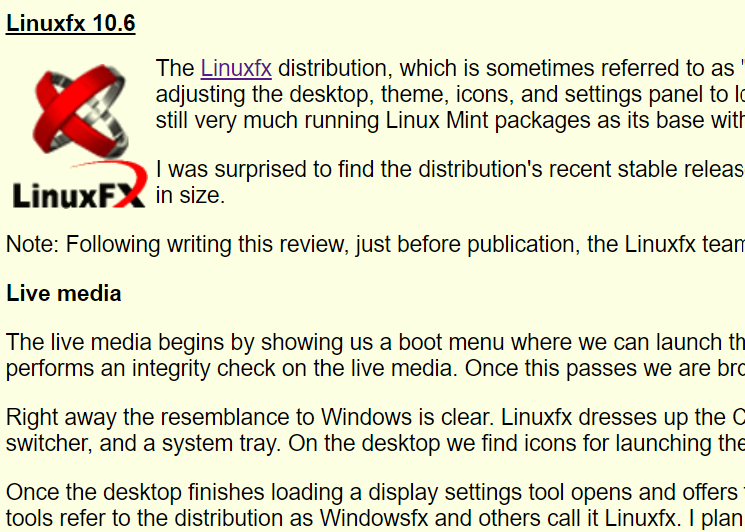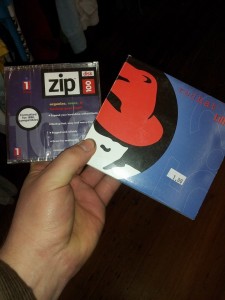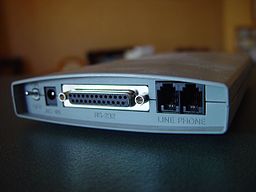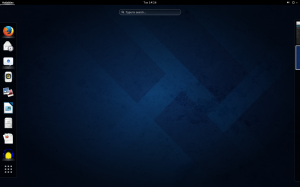Thomas Holbrook II | The *Nixed Report

As opposed to writing something every day I’ll be doing a weekly wrap up every Saturday night. This week’s report comes courtesy of my Librebooted ThinkPad T500. The keyboard is a dream to type on and this system actually has 8 GB of DDR2 memory.
This fine machine can still hold up to this day and is currently running Linux Mint 20.
Each section will follow the flow of the magazine itself. The Unix section covering Unix-like operating systems and related technology will be followed by the Overlooked Pop Culture section, which covers a variety of popular things that are often overlooked, misunderstood, or both.
Unix
Even though Apple’s OS X is based on BSD, it still has security vulnerabilities. It turns out the T2 Chip is vulnerable to exploits that would let someone take control of a user’s Mac. This would require physical access to a Mac, so it won’t impact most users.
Maybe Louis Rossman can utilize this exploit for data recovery purposes.
Even with newer hardware, Apple will likely face skepticism regarding its branded silicone, Apple Silicone. At least they still have a foothold in the mobile arena. Their next iPhone is expected to be announced this Tuesday.
In Linux news, Sparky Linux 4.13 was recently released. Based on Debian, they updated the “stable” package repositories, the kernel, Firefox ESR, and more. Speaking of cool Linux news, System76 recently interviewed two individuals from the National Snow and Ice Data Center (NSIDC) about the use of a Lemur Pro for archiving satellite imagery for NASA.
In cloud computing news, Nextcloud’s capabilities are increasing as well. Not only can you collaborate with their tools, you can integrate Microsoft Teams, Slack, Github, and more. It’s a good thing that software is updated from time to time, because legacy software has its limits, which can become dangerous depending on the situation.
The legacy version of Excel has a limit of 65,000 rows, which caused the loss of information pertaining to nearly 16,000 positive COVID-19 tests in the UK.
Overlooked Pop Culture
Pro Wrestling fans may be excited about Halloween Havoc making a comeback this year. The classic WCW Pay Per View event is being adopted by NXT. It has been years since the Halloween themed event has aired, so having spookiness galore may ignite fan enthusiasm.
It isn’t all pumpkins and candy corn.
What may also be scary, albeit to Vince McMahon, is this piece from What Culture about Paige learning about Unionism. This comes in the wake of WWE wanting to take more control over performers’ use of social media platforms, even though said performers are “independent contractors.”
Though the WWE has become creative in offering a form of entertainment to the world in the midst of COVID-19, they aren’t the only option.
The Anime News Network has their Fall 2020 Preview Guide, so anime fans who want more than people in spandex in a squared circle wearing night goggles may be happy. Video games, whether it’s on a console or PC, are among a plethora of entertainment options as well.
Those who prefer building their own gaming PC may want to take note of Patrick Lathan’s article reviewing the Lian Li Lancool 215 Airflow Case. As for console gamers, William D’Angelo of VGChartz has an interesting piece regarding the Xbox Series X and PS5.
On a mental health note, it’s important to understand one thing: Even if one is “being edgy,” it’s never a good idea to show up at someone’s house uninvited and unwelcome.
In conspiracy theory news, QAnon, a joke on 4Chan that got way out of hand, has now caused Facebook to change their policies regarding groups mentioning theories peddled by the fake entity.
The removal of said groups will impact the spreading of certain theories.
John McAfee has been arrested in Spain and faces extradition to the US over tax evasion. Topping off the craziness is the story of a group who got caught attempting to place under citizens’ arrest kidnap Michigan Governor Gretchen Whitmer.
Play stupid games, win stupid prizes; that’s all for this week.

While you’re here, would you be willing to become one of our Patrons on Patreon? Doing so will get you access to the magazine for much cheaper than purchasing from the website while allowing us to grow. With enough resources, we’ll be able to have more content available throughout the week. Thank you so much in advance for your time.




